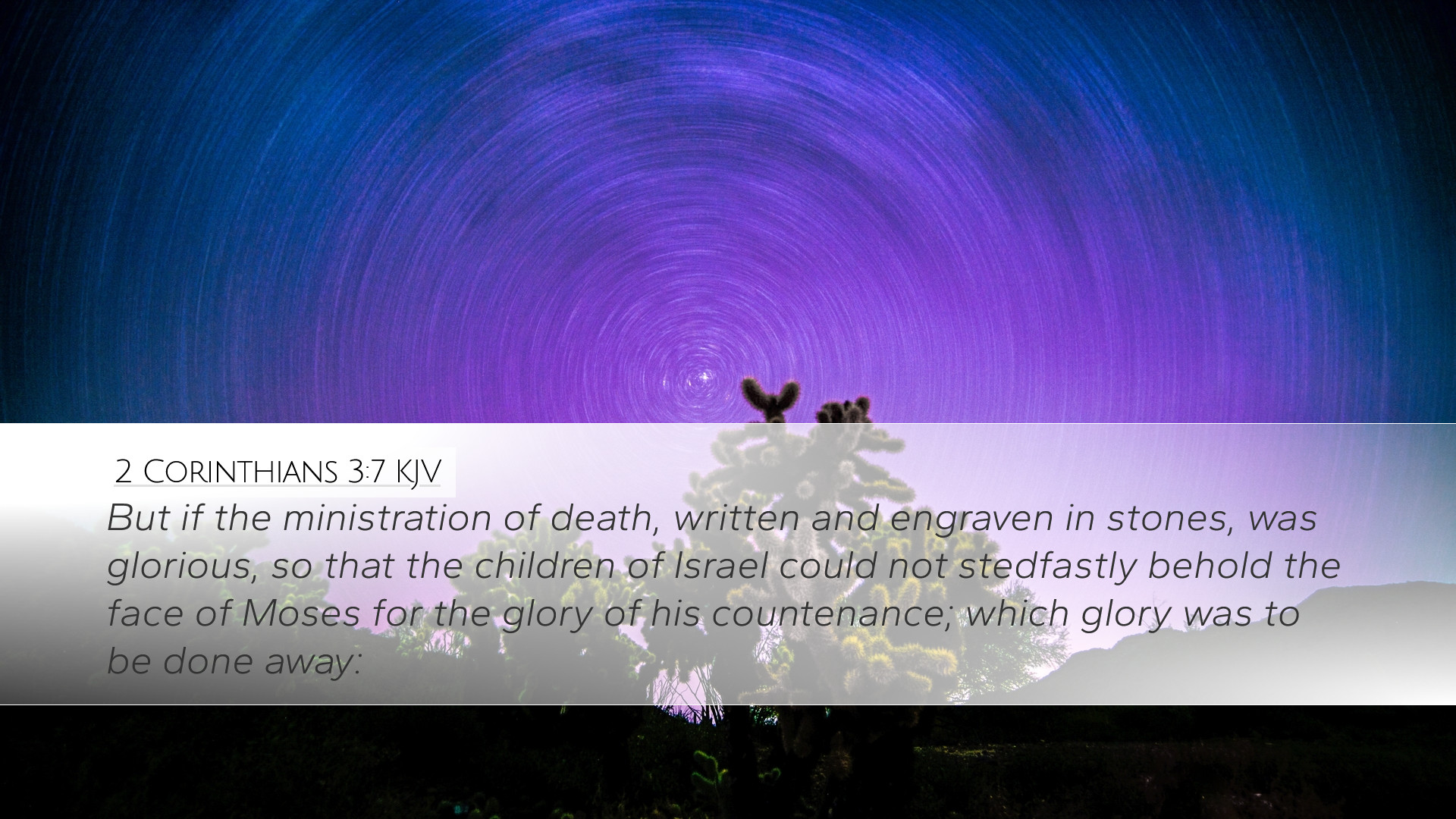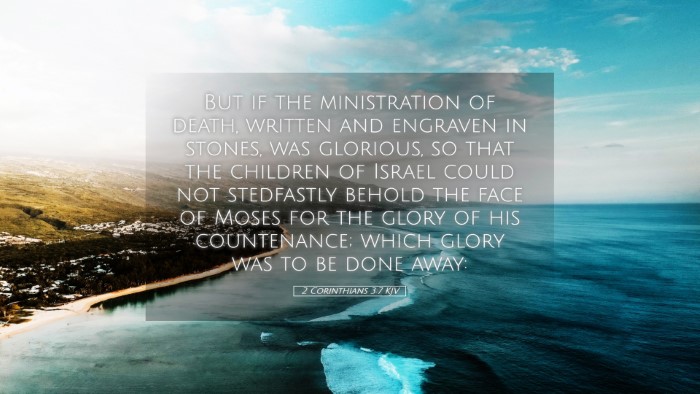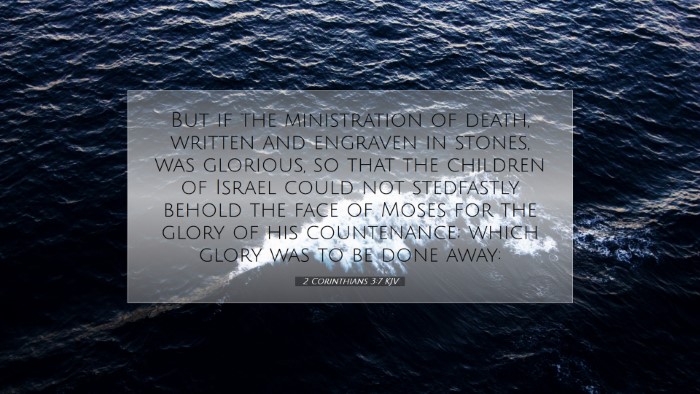Commentary on 2 Corinthians 3:7
Verse: "But if the ministry of death, written and engraved on stones, was glorious, so that the children of Israel could not steadily look at the face of Moses because of the glory of his countenance, which glory was passing away."
Introduction
The Apostle Paul, in this passage of 2 Corinthians, contrasts the Old Covenant's ministry with that of the New Covenant. This verse emphasizes the nature of the Old Covenant, often referred to metaphorically as the "ministry of death." Here, Paul challenges the Corinthians to appreciate the surpassing glory of the New Covenant in Christ.
Historical Context
Understanding the Ministry:
- The Old Covenant: This refers to the Law given to Moses on Mount Sinai, inscribed on stone tablets. It carried the weight of divine authority but also served to highlight human sinfulness.
- The Glory of Moses: When Moses descended from Sinai, his face shone due to his communion with God, symbolizing the radiance of the Law that was temporary and ultimately fading.
Insights from Commentators
Matthew Henry
Henry notes that Paul describes the Old Covenant as a "ministry of death" because it brought condemnation due to mankind's inability to fully obey the Law. He emphasizes that while the glory of the Law was evident, it was not designed to bring everlasting life but rather to point to the need for salvation through Christ.
Albert Barnes
Barnes outlines three critical aspects of this passage:
- The Glory of the Old Covenant: He acknowledges that the Old Covenant had its glory, manifested in the strict and divine requirements of the Law.
- The Contrast with the New Covenant: Barnes astutely points out that the New Covenant surpasses the Old in glory. While the Law administered condemnation, grace in Christ administers life.
- Temporary Nature of the Old Covenant: He highlights that the glory associated with Moses was fading, indicating the transitional nature of the Law toward the fullness found in Christ.
Adam Clarke
Clarke offers a detailed analysis of the phrase "ministry of death," explaining that Paul reflects on the Law's inability to provide salvation, thus leading to spiritual death. He stresses the importance of recognizing the Law for its instructive purpose but also notes that it must be understood in the light of Christ's redemptive work, which brings life and freedom.
Theological Implications
This verse embodies profound theological implications for both individual believers and the church as a whole:
- Understanding Grace: The passage conveys the stark difference between Law and grace, urging believers to recognize the life-giving Spirit that is central to the New Covenant.
- Transformation through Christ: Just as Moses' face radiated glory, believers, too, are transformed into the likeness of Christ, reflecting His glory and grace to the world.
- The Role of the Holy Spirit: The transition from the Old to the New Covenant highlights the essential work of the Holy Spirit in illuminating our understanding and enabling us to live out God's commandments with love instead of obligation.
Practical Applications
For pastors, students, and theologians, the study of 2 Corinthians 3:7 encourages several practical applications:
- Emphasize the New Covenant: In preaching and teaching, focus on the transformative power of grace through Jesus Christ rather than merely adhering to the Law.
- Reflect Christ's Glory: Encourage believers to seek personal transformation so that their lives may reflect the glory of Christ, impacting their communities.
- Rely on the Holy Spirit: Remind the church of the importance of leaning on the Holy Spirit for guidance, conviction, and empowerment in living a life that honors God.
Conclusion
2 Corinthians 3:7 serves as a poignant reminder of the glorious transition from the Old Covenant to the New. The ministry of death, while once glorious, is superseded by the ministry of the Spirit, which brings life. For believers, this transition reveals the richness of God’s grace and the depth of the redemptive work accomplished through Jesus Christ. As we delve into Paul’s assertions, we are called not only to understand the past but to live boldly in the present, empowered by the truth of the Gospel.


